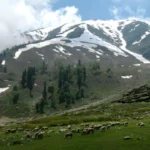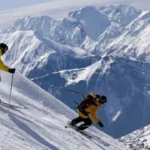Table of Contents
Toggle- Overview
- 1. Costume: Be Pre-Winter Dressed in Kashmir
- 2. Travel Necessities for Kashmir
- 3. What to Pack for Adventure Activities in Kashmir
- Conclusion
- How to book Kashmir tour online?
- People Also Ask
- What clothes should I pack for a Kashmir trip?
- Is it safe to travel to Kashmir?
- Do I need a permit to visit Kashmir?
- What are the must-visit places in Kashmir?
- What type of footwear is recommended for Kashmir?
- Should I carry cash or is there easy access to ATMs?
- Can I get a SIM card in Kashmir?
- What is the best time to visit Kashmir?
- Is there any specific food I should try in Kashmir?
- Do I need to book my accommodation in advance?
- How can I travel around Kashmir?
- What are the famous handicrafts to buy in Kashmir?
- Is it okay to take photographs in Kashmir?
- What should I pack for a winter trip to Kashmir?
- What is the food and water situation in Kashmir?
- Can I go skiing in Kashmir?
- Are there any travel restrictions in Kashmir for tourists?
- What currency is accepted in Kashmir?
- Can I visit Kashmir with kids?
- What are some adventure activities in Kashmir?
- Is the weather cold in Kashmir year-round?
- Can I visit Kashmir during the monsoon season?
- What language do people speak in Kashmir?
- Is it easy to find vegetarian food in Kashmir?
- What should I carry for a trekking trip in Kashmir?
- Inquiry Form
Overview
Kashmir is broadly considered as “Paradise on Earth,” and one of the most visited tourist destinations in India. Whether it is snow-clad mountains, lush green valleys, beautiful lakes, or rich cultural heritage of this place, every visit to Kashmir provides an experience that can not be paralleled in this world. However, some advanced preparation is essential to relish a Kashmir tour, and to be fully aware of what one must carry during the tour forms one of the most crucial parts of your entire planning process.
We guide you on what to pack for a trip to Kashmir-from essential clothing, from accessories while traveling to things you might not have considered. Whether you’re trekking through high mountains to Gulmarg, houseboats on Dal Lake, or walking through beautiful Mughal Gardens in Srinagar, we have got you covered!
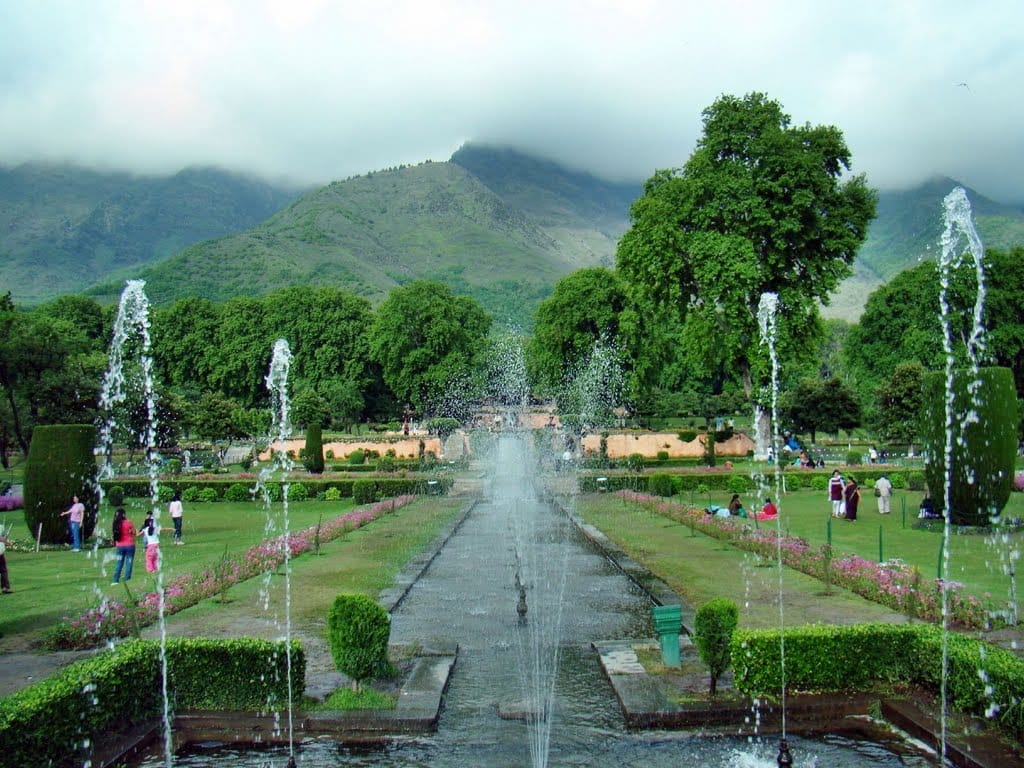
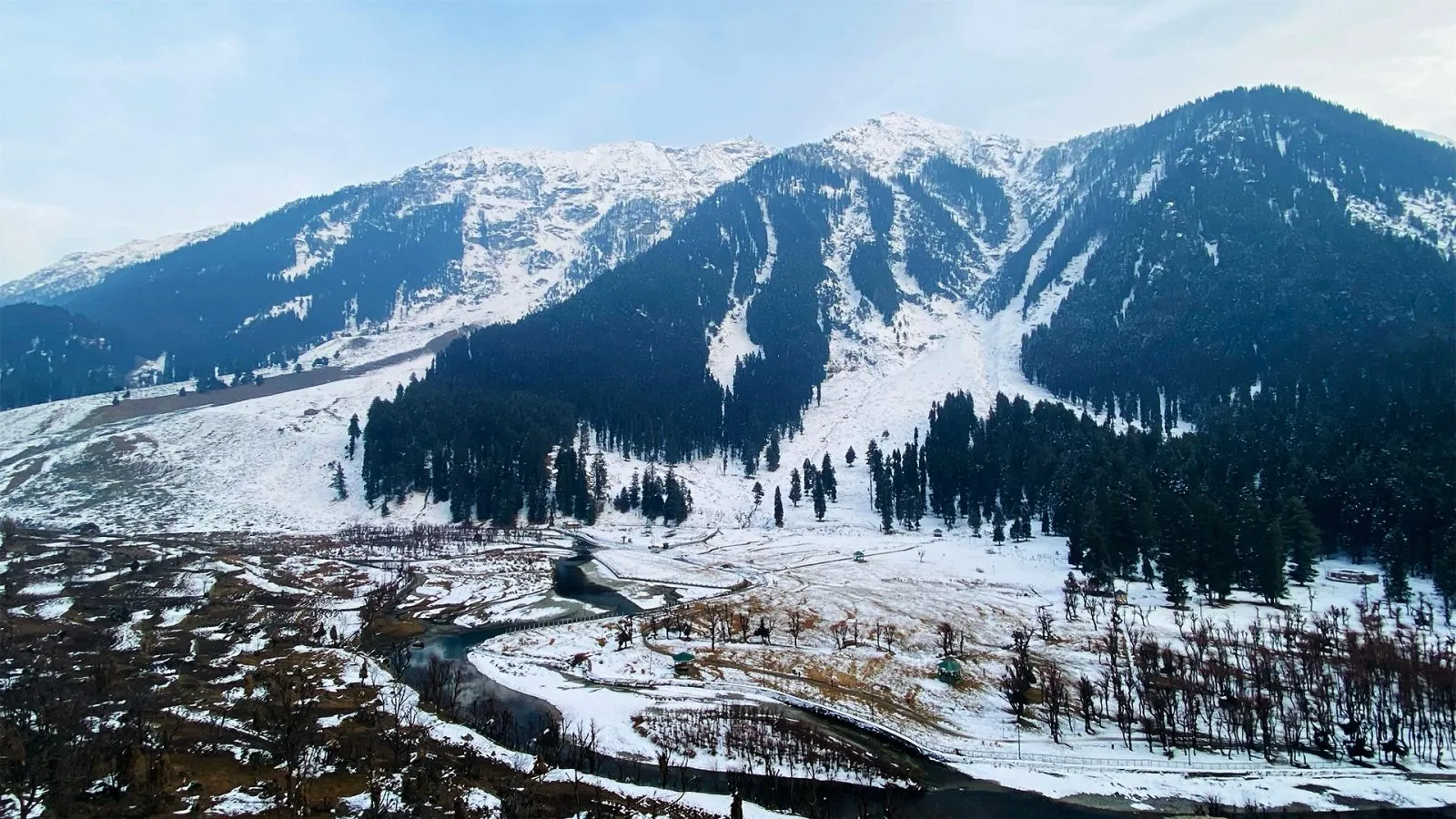
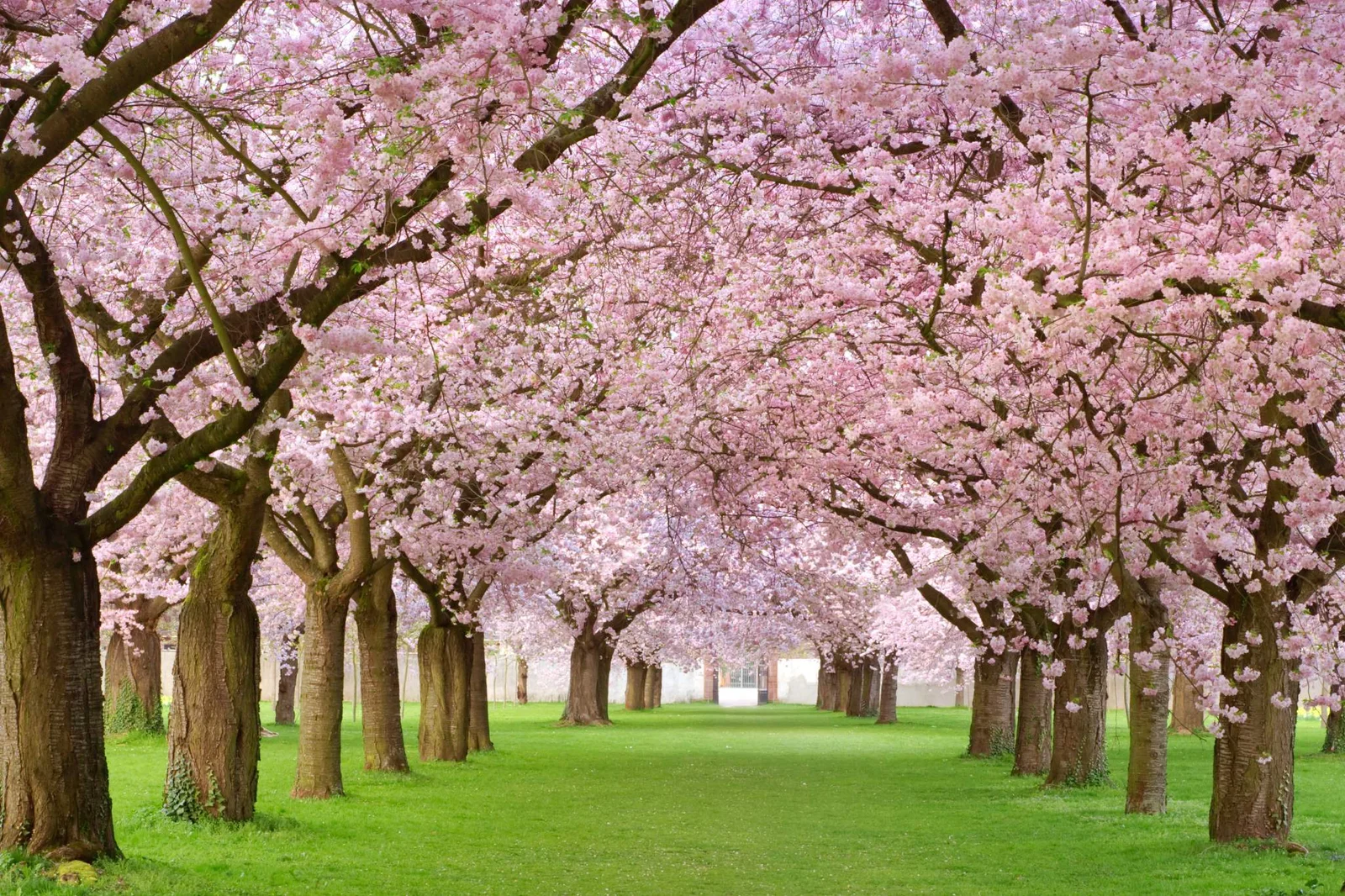
1. Costume: Be Pre-Winter Dressed in Kashmir
Kashmir’s weather is quite unpredictable, and a change of clothes for all seasons is essential. And while in the winters, spring, summer, or autumn season, a person requires a lot of layers to feel warm.
i. Winter (November to February)
Winter in Kashmir is freezing cold with sometimes near-zero temperatures, especially in the Gulmarg and Pahalgam region. A heavy snowfall area, this place is literally a winter wonderland. The clothes is the secret to any great winter vacations – layers, layers, and layers.
Thermal Wear: An absolute must in the cold season. Invest in good quality thermal tops and bottoms that will provide the basis for most of your outer layers.
Down Jackets: the thick insulated down jacket should prevent the wind against your skin from being too cutting. They should be windproof and waterproof.
Woolen: these include cardigans, sweaters, and shawls which should feature as layers. Of course, global recognition of exceptional Pashmina wool in Kashmir makes it quite natural to buy a few scarves or shawls for warmth and to be in style.
Fleece or Woolen Gloves: Thick, insulating gloves really keep your hands warm, especially if you are going to work with snow.
Warm Hat/Cap: Woolen beanie or cap that ensures keeping your head warm because the head is the place where the top parts of your body tend to lose heat.
Thermal Socks: Woolen socks are the only saviors in the freezing temperature of Kashmir, mainly during trekking or performing out-door activities.
Waterproof Boots: Snow boots/Insulated waterproof footwear because many parts of Kashmir would be snow-covered and could turn out to be muddy.
ii. Summer (March to June)
Kashmir in summer is relatively mild; the temperature is well within 10°C to 30°C. Time of the year which is great to visit, more so if one can avoid the heat of the plains.
Light woolens: though the days might seem warm, nights could still be a little coolish so, carry light woolen jackets or cardigans with you.
T-Shirts and Cotton Tops: cotton clothes must be carried for day time outing so that you do not sweat in places where you are to be seen around.
Comfortable Footwear: If you plan to walk around the city, gardens or markets, comfortable sneakers or walking shoes.
Sun Protection: Though it may be cool, even on cloudly days, the sun can be strong. Carry good sun block with a high SPF factor, a couple of sunglasses and a wide-rimmed hat.
iii. Monsoon (July to September)
Though Kashmir is relatively less wet than parts of the Indian city, the rainy season may catch you off guard with some rained-begun shower, so you will have to expect that.
Raincoat: Carry a good, breathable raincoat that will cover you in cases of sudden rain.
Waterproof Footwear: You might get slippery terrain; bring stronger shoes for wet conditions.
Umbrella: A small umbrella will come handy for a quick shower or when you are out exploring.
iv. Autumn (October to November)
Autumn in Kashmir is a beautiful time, as the leaves change color and the weather remains pleasant. The temperature can range from 10°C to 20°C.
Layering Clothes: During this season, you’ll need a mix of warm and light clothes. A light sweater with a jacket works best for most of the day.
Comfortable Footwear: If you wish to walk or go to gardens such as Shalimar Bagh or Nishat Bagh, you would need some comfortable footwear.
2. Travel Necessities for Kashmir
Other than wearing apparels, a few travel essentials are required to ensure your Kashmir tour easy-going and hassle-free.
i. Documents & Identification
Valid ID Proof: You carry government-issue id proof, like Aadhar card or passport, driver’s license, in case check-ins, proper procedural processes in hotels, or anywhere you needed
Travel Insurance: Get a travel insurance that covers medical emergencies, trip cancellation, and lost luggage.
Visa/Permits (If necessary): For international travelers, the visa for India must be checked to ensure that every piece of paper is well in place.
ii. Backpack/Daypack
For Kashmir Valley landscapes, dependable comfortable daypack or backpack would be needed for carrying essentials during treks, visiting places, and sightseeing.
Waterproof Bag: A waterproof bag will protect your luggage from rain during the monsoon season.
Compression Bags: If one has very little space, packing compression bags will actually help him organize his clothes and save space in the bag .
iii. Camera & Electronics
Covering most of the dramatic views, don’t forget to take a great shot of the area.
Camera with Extra Batteries/Power Bank: From serene Dal Lake to rugged mountains, cinematography looks amazing here. Carry a camera or smartphone with a good quality lens. And do not forget extra batteries or a power bank so that the device does not die during the day.
Travel Adapter: India uses a Type C or Type D power plug, so you may need a travel adapter in case of a foreign trip.
Headphones/Portable Speakers: If you are music lover, then you must also have headphones or a portable speaker to enjoy in quiet times in the lakes or on long road trips
iv. Money & Cards
Cash: Although you can find some ATMs in all the major cities, like Srinagar, yet there remain some unapproachable places that do not take cards. Hence, ensure you carry enough cash for such places.
Credit/Debit Cards: Credit/debit cards are accepted at most places in big towns, so don’t forget to carry them for hassle-free transactions.
v. Health and Safety Kit
You can’t visit Kashmir without carrying a health and safety kit. It may lead you to face minor medical emergencies or issues.
Medicines: Always carry all your medicines that you would require during the trip. Also, you can carry your prescription with you because you never know when you might need it.
First Aid Kit: Small first aid kit with band-aids, antiseptic ointment, pain killers and so are lifesavers.
Certain medicines: If you travel to high-altitude places like Gulmarg or Sonamarg, then you must carry certain medicines for altitude sickness.
Mosquito Repellent: During some parts of the year, mosquitoes have been quite a nuisance in Kashmir. You would be suggested to take good mosquito repellent.
Hand Sanitizers and Wet Wipes: Hygiene is a must while traveling through places like Kashmir.
vi. Snacks and Water Bottle
Reusable Water Bottle: Though the water quality of Kashmir is comparatively good, it is always advisable to carry a filtered bottle or a reusable bottle while traveling.
Snacks: Carry all the ready-to-eat and easy-to-grab things such as nuts, energy bars, and biscuits during a long drive or trek.
3. What to Pack for Adventure Activities in Kashmir
Adventure activities you can do in Kashmir in its various field including trekking and skiing, river rafting, paragliding, among many others. These are what you should be carrying to have fun at these adventure activities.
i. Trekking and Hiking
The best are for hiking boots that gives you an excellent sense of support and comfort while walking through the beautiful valleys. Trekking poles are a blessing for mountainous tracks, so that you do not strain your knees.
Waterproof jacket: In case the weather decides to shift suddenly, this lightweight waterproof jacket will save you from getting wet.
Sunscreen and Lip balm: Come on, let’s be honest,the sun in the mountains is not to be trifled with. You can forget the silly mistake of not applying enough sunscreen or lip balm.
ii. Skiing and Snow Sports
Snow Gears: If you want to ski there, you can hire it in local shops but do carry your gloves woolen socks, and layer of warmth.
Goggle: You require snow skiing goggles for your eyes so that they remain safe from the glare of the snow and the cold wind.
Thermal Wears: You have to carry up their respective thermal wear with you whenever you go for activities based on snow so that you never feel chills.
iii. Fishing and Water Activities
Waterproof Clothing: If you happen to be looking to indulge in some kind of aquatic adventure at Dal Lake or similar rivers, waterproof clothing ensures you remain dry and relaxed.
Fishing Gear: If you’re a fishing enthusiast, take the required gear, though rents are readily available in most places.
iv. Stuff You Wouldn’t Think Of
There are many other things you may not typically think of, but which might make your visit to Kashmir a much more manageable affair.
Power Bank: Electricity can be very unpredictable in several remote areas; therefore, your power bank would help you at a time when you are running out of battery on devices.
Multi-tool/Swiss Army Knife: It is this handy device that accommodates numerous features. Such can be a knife, scissors, and screwdrivers.
Notebook and Pen: Sometimes, traveling offers a very ideal opportunity to jot down all the thoughts and experiences.
Plastic Bags or Zip-lock Bags: To carry the garbage or wet clothes in case of trekking or any other water sport.
Hand Fan or Portable Air Purifier: During summer, keep a hand fan or an air purifier with you; it will make your living much comfortable in case of hot spells.
Conclusion
A trip to Kashmir is sure to be magical, but the secret to making it memorable lies in preparation. Pack the right things for the trip, and that would ensure you are comfortable, safe, and well-equipped to enjoy everything Kashmir has to offer. It might be be in its winters or busy times of the year or spending long days trekking through all the beautiful lush green pastures of summer, but be sure to carry the essentials as stated in this guide.
From warm clothes to adventure gear, health kits to electronic gadgets, better preparation will let you really get deep into the beauty of Kashmir. So pack your bags, get ready for that unforgettable experience, and get ready to see the stunning beauty and rich culture of Kashmir!
How to book Kashmir tour online?
Contact Brown Chinar at +91 6005039532/+91 9906188874 or Email us at : Enquiry@brownchinarkashmir.com
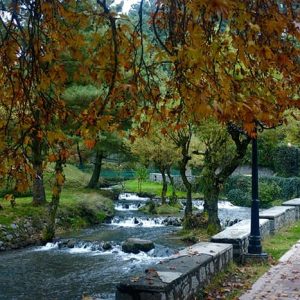
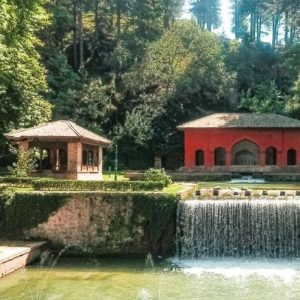
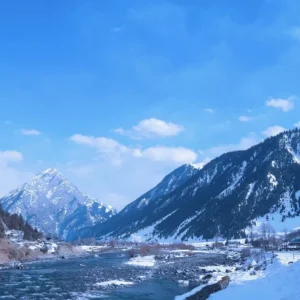
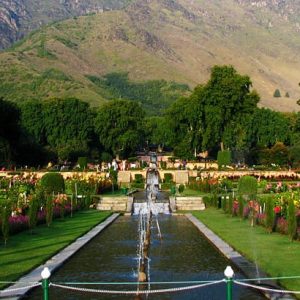

People Also Ask
What clothes should I pack for a Kashmir trip?
Kashmir experiences varying weather conditions. Pack light cotton clothes for summer (March to June) and woolen clothes for winter (November to February). Don’t forget a waterproof jacket for unexpected rain, especially if you’re visiting during monsoon (July to September).
Is it safe to travel to Kashmir?
Kashmir is generally safe for tourists, but always check the current travel advisories from your government. Stay updated on local news, follow the guidance of local authorities, and avoid areas with political unrest.
Do I need a permit to visit Kashmir?
No special permit is required for domestic tourists. However, foreigners (except for certain countries) may require a Protected Area Permit (PAP) for restricted zones, which can be obtained through the Indian Ministry of Home Affairs.
What are the must-visit places in Kashmir?
Srinagar (Dal Lake, Mughal Gardens), Gulmarg (skiing), Pahalgam, Sonamarg, Kupwara, and Hemis National Park are some of the best destinations in Kashmir.
What type of footwear is recommended for Kashmir?
Comfortable walking shoes or boots for trekking, and sandals or waterproof shoes if you plan to visit lakes or go sightseeing in the city.
Should I carry cash or is there easy access to ATMs?
While major cities like Srinagar have ATMs, it’s recommended to carry enough cash, especially if you’re traveling to remote areas where ATMs might not be available.
Can I get a SIM card in Kashmir?
Yes, you can buy a local SIM card in Srinagar. However, note that connectivity in some remote areas may be limited, and it’s better to check with the service provider for coverage.
What is the best time to visit Kashmir?
The best time is spring (April to June) for sightseeing and flower gardens, summer (July to August) for pleasant weather, and autumn (September to October) for breathtaking landscapes. For snow sports, visit in winter (December to February).
Is there any specific food I should try in Kashmir?
Don’t miss the iconic Rogan Josh, Gushtaba, Yakhni, Kashmiri Pulao, and Wazwan (traditional multi-course meal). For dessert, try Kahwa (traditional tea) and Shahi Tukda.
Do I need to book my accommodation in advance?
It’s recommended to book your stay in advance, especially during peak tourist seasons, as popular destinations like Srinagar and Gulmarg can fill up quickly.
How can I travel around Kashmir?
You can use taxis, private cars, or shikaras (traditional boats) in Srinagar. For exploring more remote areas, renting a car with a driver or using local transport is advised.
What are the famous handicrafts to buy in Kashmir?
Famous items include Pashmina shawls, Kashmiri carpets, paper mâché items, and Kashmiri saffron.
Is it okay to take photographs in Kashmir?
Yes, photography is allowed in most tourist areas, but avoid taking photos in restricted or sensitive areas. Always ask locals for permission before snapping a photo.
What should I pack for a winter trip to Kashmir?
For winter, pack thermal wear, heavy woolen clothes, down jackets, gloves, scarves, and waterproof boots. Also carry essentials like sunscreen and sunglasses as snow reflects sunlight.
What is the food and water situation in Kashmir?
While street food can be delicious, it’s advisable to eat at well-established restaurants. Drink bottled water or filtered water to avoid health issues.
Can I go skiing in Kashmir?
Yes, Kashmir is a popular skiing destination, especially in Gulmarg. The region offers snow sports including skiing, snowboarding, and snowshoeing in winter.
Are there any travel restrictions in Kashmir for tourists?
Occasionally, security-related restrictions might apply, especially in certain areas. It’s important to check local news and official government guidelines before traveling.
What currency is accepted in Kashmir?
The currency used is Indian Rupees (INR). International credit/debit cards are accepted in most hotels and large shops, but carry cash for local markets and remote areas.
Can I visit Kashmir with kids?
Yes, Kashmir is a family-friendly destination with a range of activities for kids like boating on Dal Lake, visiting gardens, and playing in the snow during winter.
What are some adventure activities in Kashmir?
Trekking, camping, skiing, paragliding, mountain biking, and fishing are some of the adventurous activities that Kashmir offers.
Is the weather cold in Kashmir year-round?
No. Summers (March to June) are pleasant with temperatures around 20-30°C (68-86°F), while winters (December to February) can be extremely cold, with temperatures dropping below freezing.
Can I visit Kashmir during the monsoon season?
Monsoon (July to September) brings heavy rainfall to Kashmir. While this is the off-season for tourism, it’s still possible to visit, but expect some areas to be less accessible due to rain-induced landslides.
What language do people speak in Kashmir?
The official language is Kashmiri, but Hindi and English are also widely spoken, especially in tourist areas.
Is it easy to find vegetarian food in Kashmir?
Yes, Kashmir offers a variety of vegetarian food, such as Kashmiri Pulao, Aloo Gobi, and Kashmiri Dum Aloo, along with many other local and North Indian vegetarian dishes.
What should I carry for a trekking trip in Kashmir?
For trekking, carry sturdy trekking shoes, warm clothes, a daypack, water bottles, snacks, and a first aid kit. If trekking at higher altitudes, include sunscreen, sunglasses, and gloves for protection.


